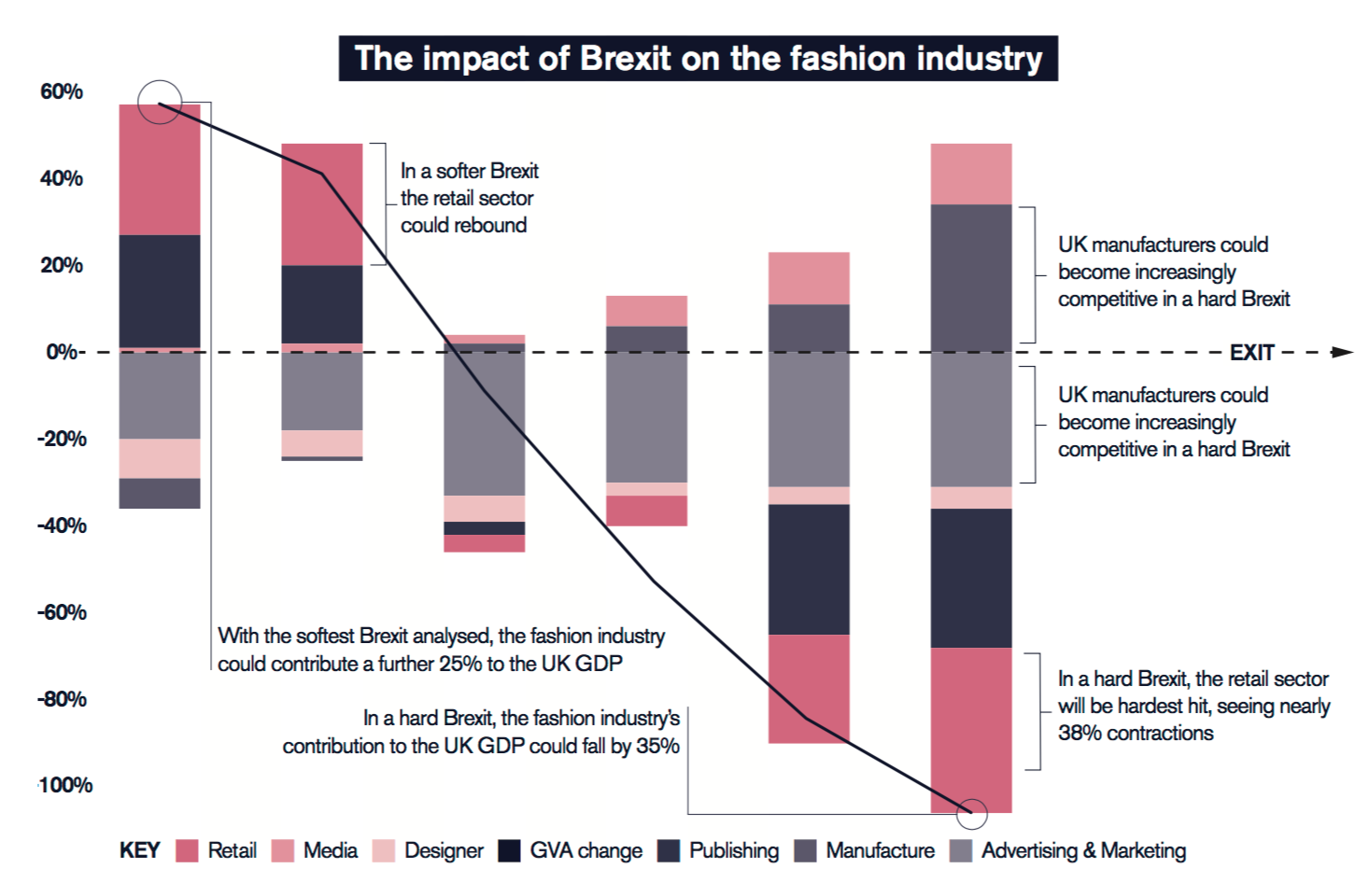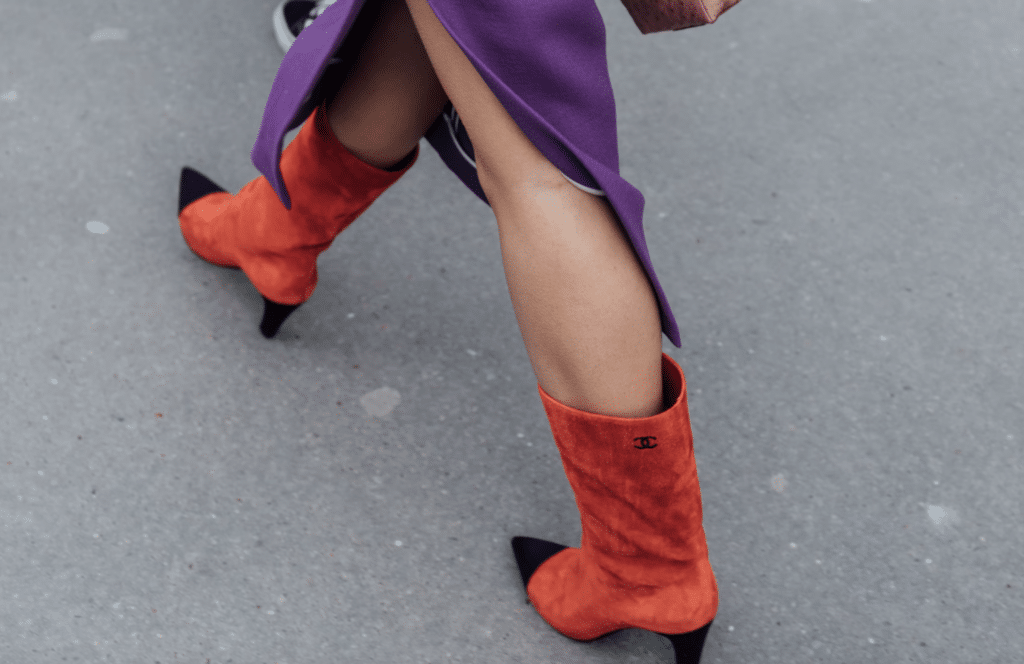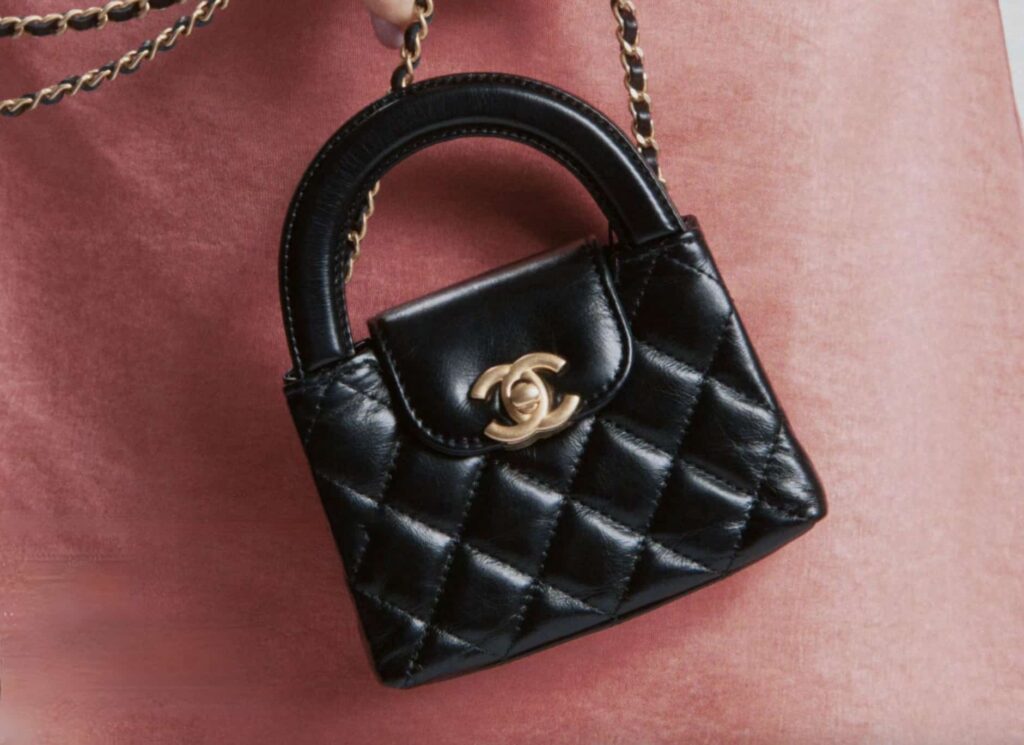Following from the June 2016 vote that the United Kingdom would leave the European Union and the UK government’s move to invoked Article 50 of the Treaty on the European Union (the start of the formal legal process by a member state of the European Union), there has been a great deal of speculation as to the impact that Brexit – as its been coined – will have on various industries. Speculation regarding the fashion industry has been particularly widespread, with some saying the exit, which is slated to occur in March 2019, poses a serious risk to the UK fashion industry, while others have been adamant that the end result may not be as catastrophic as the media suggests.
As the UK government attempts to secure a transitional deal to ease its exit from the European Union, Fashion Roundtable, a recently launched consultancy, has formed to ensure that the fashion industry’s interests are considered in the decision-making process. In connection, the firm has presented a white paper, entitled, Brexit and the Impact on the Fashion Industry, which addresses at least a handful of the $40.3 billion dollar British fashion industry’s concerns.
Fashion Roundtable’s paper – which was based on survey information gathered over a three-month time period beginning late last year from industry leaders and business owners – focuses on three main areas: Maintaining the Single Market; Continuing our Involvement in EU Cultural, Educational and Business Programs; and Providing Legal Guarantees for EU Nationals.

Of the major fashion industry entities that participated in generating the white paper – which included the British Design Council, London College of Fashion, Showstudio, MatchesFashion.com, Vogue and the Victoria & Albert Museum, among others – 80 percent “believe [that] Brexit will be bad for the EU and UK fashion industries.”
Thanks to the single market structure of the European Union (making up one territory without any internal borders or other regulatory obstacles to the free movement of goods and services), “Designers, models, photographers, stylists, manufacturers and journalists, many of them freelance, have to have the ability to move freely and move product freely, at short notice, with low cost,” the report states.
“UK fashion benefits enormously from encouraging European designers and manufacturers to work and operate in the UK,” Fashion Roundtable states. “We should not shut the door to these people as they enrich the products and services the industry is able to deliver.” And this “works both ways, as UK nationals seek out valuable experience and employment across Europe, enriching their labor markets.”
Fashion Roundtable’s survey found that “27% of [the fashion industry] said they will leave the UK, if the Government does not negotiate a deal with favorable terms to the needs of the fashion industry.” In particular, this means “guaranteeing the rights of European citizens in the UK, post-Brexit, but also allowing the European Court of Justice to maintain its protective oversight over these citizens, going forward.”
Economically speaking, the visa requirements that will come about as a result of the UK’s removal from the EU (thereby requiring Brits to secure visas to travel throughout Europe) “bring costs and delays which are totally at odds with a fast-paced thriving global business, placing us at a serious disadvantage against competitors from other EU countries.” Paired with rising “tuition fees” in the UK, the economic impact of Brexit stands to “threaten the future of fashion in the UK,” the report states.
Aside from the concerns of fashion brands (which include an emphasis on “logistics and fluid supply chains, which are vital to an industry built on speed, talent and ease of delivery”), retailers, in particular, are concerned about the impact that Brexit will have. According to Fashion Roundtable’s paper, “Net-A-Porter, Amazon, Asos, Farfetch and Matches, [are] all headquartered here. Any delays to their delivery from design to consumer will lead to relocation decisions.”
In addition to emphasizing the importance of the Brexit implementation period, which will last from March 2019 to December 2020, as an opportunity to ensure that the government “delivers a Brexit that works for fashion,” Fashion Roundtable’s paper states that while Brexit, more generally, is “a time of uncertainty for all industries,” it “wants to turn this uncertainty into positive actions through our engagement with Government.”











